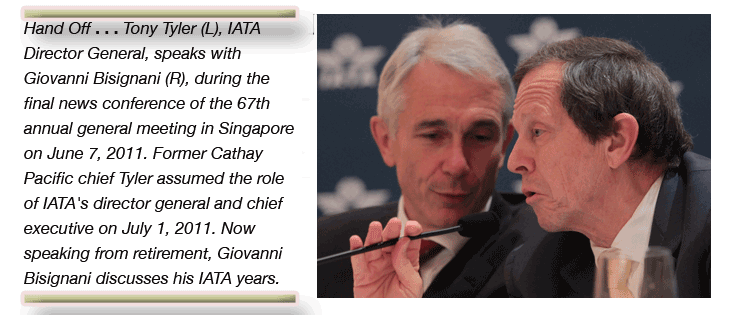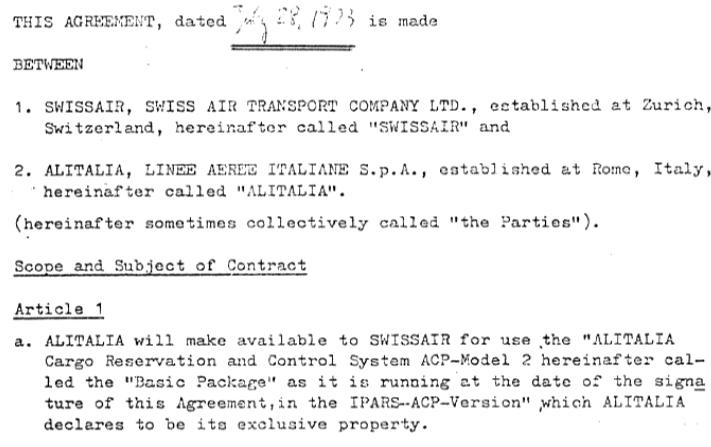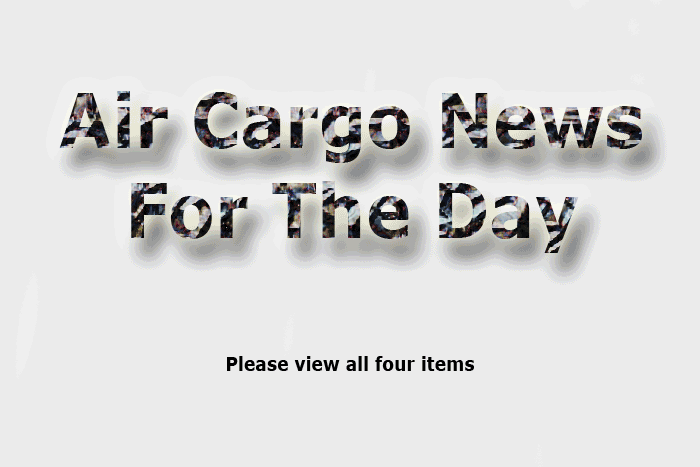  t
doesn’t seem to make much sense to publish a book replete with mendacity,
yet former Director General of IATA Giovanni Bisignani’s book, Shaking
the Skies, is one such read. Leaving the self-congratulatory style
aside, it both glosses over and misrepresents facts. Since its publication,
various industry insiders, including “Aviation Intelligence
Reporter” have mercilessly ripped the book. Rather
than trying to figure out why someone who has enjoyed the limelight for
years writes such a book, let’s focus on two specific areas to illustrate
matters in a manner that speaks for itself—one, a chapter titled
“Assessing the situation,” the other, “Good and bad
technology.:” t
doesn’t seem to make much sense to publish a book replete with mendacity,
yet former Director General of IATA Giovanni Bisignani’s book, Shaking
the Skies, is one such read. Leaving the self-congratulatory style
aside, it both glosses over and misrepresents facts. Since its publication,
various industry insiders, including “Aviation Intelligence
Reporter” have mercilessly ripped the book. Rather
than trying to figure out why someone who has enjoyed the limelight for
years writes such a book, let’s focus on two specific areas to illustrate
matters in a manner that speaks for itself—one, a chapter titled
“Assessing the situation,” the other, “Good and bad
technology.:”
Mr. Bisignani took over IATA on May 15,
2002. In “Assessing the situation” he states “Most of
IATA’s money came from members’ dues and fees for service.”
In fact, that may have been true until 1990, but certainly not in 2002.
When yours truly joined IATA in December 1990, Dr. Edward (Eddy) Spry,
who had been working for IATA for 20 years, soon thereafter became Managing
Director, second-in-command to Director General Gunter Eser. Eddy and
his management team started the IATA Registered Suppliers Program to address
the very issue Mr. Bisignani cites, namely, weaning the organization off
its total dependence on members’ dues and, as a tradeoff, gaining
the ability to engage in commercial activities.
The program grew by leaps and bounds and was
expanded to the upscale Industry Associates category, aimed at attracting
gold label companies such as Airbus, Boeing, BT, GE, IBM, Unisys, and
others. Staff was directly involved in recruiting and servicing these
program members, who paid dues for the privilege of attending heretofore
closed industry meetings. This provided them with access to airline delegates
in a non-sales environment and they also benefited from timely knowledge
of upcoming standard developments and changes before they were formally
adopted and later published in annual IATA publications. It gave the program
members a measurable advantage in their product plans while allowing them
to demonstrate commitment to the industry.
 |
In cargo, IATA started Cargo Week—a
series of events around the annual Cargo Services Conference—a precursor
to the more recent World Cargo Symposium. The same type of expanded show
was established for Passenger Services (now World Passenger Symposium).
This facilitated the involvement and participation of non-airline delegates
and also non-Registered Suppliers in certain seminars and workshops for
pay. The program was in full swing by the time I parted with IATA in January
1997, and had generated sufficient revenues to fund the reduction in airline
membership dues, with surpluses channeled back to the members and some
funds retained for running IATA internal projects. Regrettably, Eddy Spry
ended up having to resign from IATA in 1992 after becoming involved in
a court case in the U.S. brought by aviation consulting firm Airline Economics
against its former president, Mr. Harold Pareti, alleging misappropriation
of funds and other acts.
While on this subject, in his book, Mr.
Bisignani writes that “…support from the IATA management team
would be a pipedream. Many of them had ended up at the association having
failed to gain promotion at an airline.”
Eddy Spry was an economist. Stig Kristensen had
come from CERN. I had come to IATA from Unisys Corporation.
This is coming from the man who finds a
way to write “I” 7-8 times per page and only seldom credits
anyone but himself with ideas, grit, determination, and business acumen.
I can’t help but contrast it with words spoken by Tony Charaf, Delta
Air Lines Chief Cargo Officer at a recent Atlanta Air Cargo Association
meeting: “…there is no ‘I’ in team.”
How Mr. Bisignani as the CEO of IATA could
have gotten this aspect wrong is beyond belief.
In “Good and bad technology”
Mr. Bisignani waxes poetic about how while performing as CEO of Alitalia,
a post he assumed in 1989 (to 1994), “…I took a new cargo
IT program, not long after launch, called ‘Fast’ that was
quickly acquired by all the major cargo airlines” and “…I
was the person who had made the Cargo IT Program into such a practical
product than that I was the IATA DG.” Besides some really confusing
language, here are the rather vastly different facts:
Not “all the major cargo airlines”
acquired FAST, or P04, as it was also called, which ran on an IBM TPF
platform. Just a list of Unisys USAS Cargo customers from about that time
included Air Canada, Air France, Cathay Pacific, Lufthansa, Northwest,
Qantas, and Sabena, just to name a few. Additionally, several airlines
had homegrown systems, such as CHAMP at Cargolux.
But what really takes the cake is this:
in October 2008, one of the carriers that had taken the FAST system the
furthest by any means, namely Swissair, had former team members holding
a farewell party for Carido, the internal name for FAST. The material
used for that event included a copy of the original Alitalia/Swissair
contract for FAST/Carido… ready for this?
The agreement had been executed on July
28, 1973—a whopping 16 years before Bisignani materialized at Alitalia!
It certainly wasn’t a new cargo IT program. His claim that he played
the key role in “making it into such a practical product”
is the best illustration of the self-aggrandizement and loose handling
of facts throughout his book, and that’s being charitable. An excerpt
is shown below:
 It
didn’t stop Mr. Bisignani from buttonholing airline executives when
he showed up at the 2012 World Passenger Symposium to peddle his book,
shamelessly carrying a stack under his arm. He must desperately need the
book’s £19.99 list price. It
didn’t stop Mr. Bisignani from buttonholing airline executives when
he showed up at the 2012 World Passenger Symposium to peddle his book,
shamelessly carrying a stack under his arm. He must desperately need the
book’s £19.99 list price.
Ted Braun
|







